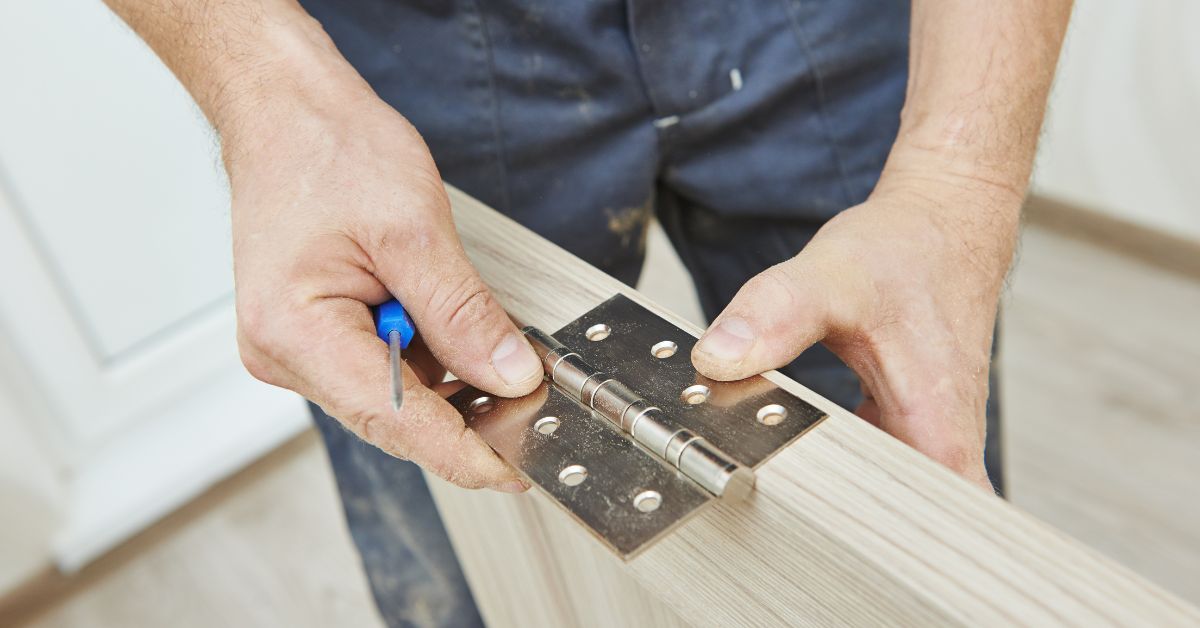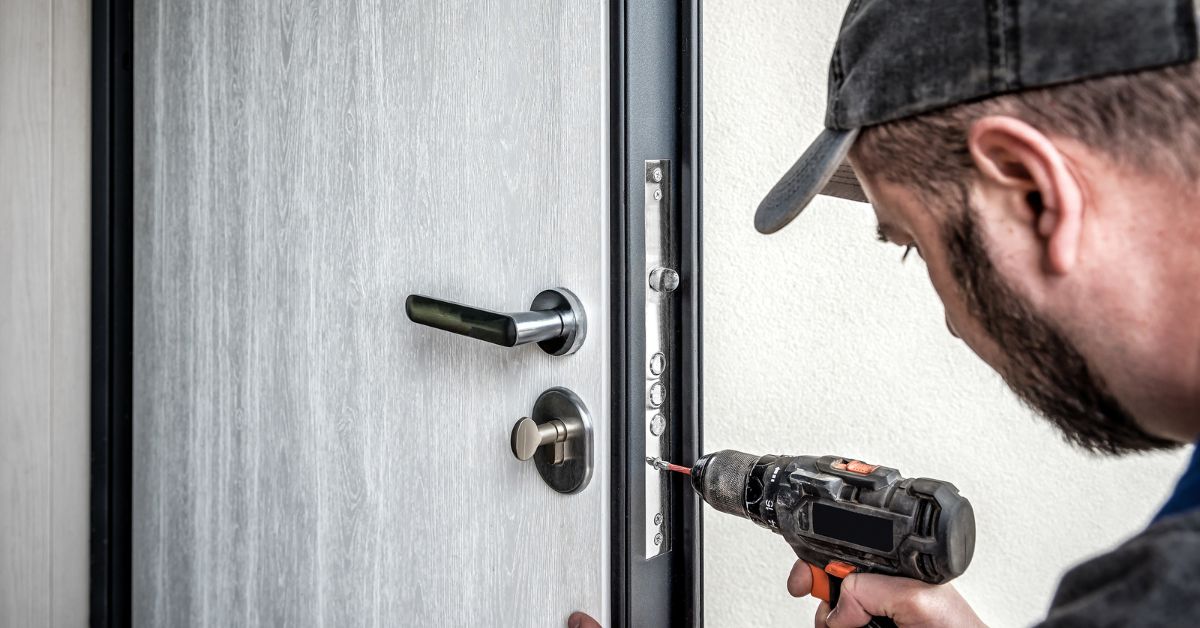How Commercial Door Maintenance Can Improve Safety

Why Commercial Door Maintenance Matters
Commercial doors endure heavy daily usage. Over time, wear and tear can cause issues that aren’t immediately obvious. When left unchecked, even small issues can escalate, leading to safety hazards due to faulty locking mechanisms, misaligned doors, or damaged frames.
Safety for Employees and Visitors
A malfunctioning door can create dangerous situations for everyone in your building. Doors that don’t lock properly can lead to security breaches, while ones that operate incorrectly could cause injuries.
For example, a broken closer mechanism might lead a door to swing open too fast, potentially causing harm to someone passing through. With proper maintenance, you can minimize these risks and guarantee all doors in your building meet safety compliance standards.
Compliance With Regulations
Commercial buildings are required to adhere to safety and accessibility codes set by the ADA (Americans with Disabilities Act) and other local regulations. If a door sticks or fails to open smoothly, you could face fines or other legal penalties. To make sure your building remains accessible and safe for everyone, it’s imperative to prioritize maintenance that addresses both function and compliance.
Reducing Costs and Downtime
Neglecting regular maintenance can result in expensive emergency repairs or replacements. By scheduling periodic maintenance, you’ll be able to avoid interruptions to your daily operations by quickly identifying and resolving minor issues early on.

Commercial Door Components That Need Maintenance
Commercial doors have several parts that work together. When one component fails, it can affect the overall functionality and safety of the door. Here’s a breakdown of the parts you should include in your regular maintenance plan.
Door Hinges
Hinges carry the weight of the door and ensure it opens and closes smoothly. Over time, they can become loose, rusty, or misaligned due to frequent use. Loose hinges may cause the door to sag, creating alignment issues that affect locking mechanisms or mobility.
To preserve the integrity of your door hinges, you must lubricate, tighten, and inspect them on a regular basis. If you’re looking for a replacement, DoorHub has high-quality door hinges for sale.
Door Closers
A door closer makes sure your door shuts automatically after being opened, which is particularly critical for fire-rated doors or secure areas. When a closer is incorrectly calibrated or leaking hydraulic fluid, the door may slam shut or fail to close completely. Both scenarios pose safety risks and should be addressed immediately.
Locks and Handles
Each door’s locking system is integral to the building’s security. Faulty locks can lead to compromised safety, while loose or squeaky handles indicate wear. To extend the lifespan of locks and handles, you need to perform routine maintenance tasks such as rekeying, lubrication, and visual inspections.
Doorframes
The frame supports the entire operation of the door and, if the frame is damaged, the door may not close securely. This could cause alignment problems, so you must inspect the frames regularly for cracks, warping, or other deformities.
Weatherstripping
Weatherstripping serves as a seal to protect your building from drafts, moisture, and temperature changes. Over time, this material can wear down or peel off, reducing its effectiveness. Maintaining weatherstripping improves energy efficiency and prevents damage from environmental factors.
Automatic Systems
If your commercial doors are automatic, the sensors, motors, and control systems all require regular maintenance. If you fail to service these components, this may cause accidents, or doors may refuse to open when needed. To adequately ensure safety, you need to clean the sensors and test the motor often.
Tips for Maintaining Your Commercial Doors
Now it’s time to explore some practical tips for keeping your commercial doors in great shape.
Schedule Regular Inspections
Routine inspections are your first line of defense against mechanical failures. Inspect all components, including hinges, locks, and frames, for signs of wear or damage. For businesses with high traffic, monthly checks are ideal. Areas with lower traffic generally only need quarterly maintenance.
Keep Components Lubricated
Proper lubrication reduces friction and prevents wear. Hinges, locks, and door closers benefit from periodic oiling to keep them operating smoothly. However, some parts require specialized products, so always be sure to use the recommended lubricants for each component.
Repair Damages Immediately
If ignored, small issues such as a misaligned hinge or a scratched frame can get worse over time. Address these problems as soon as they appear to prevent larger, more costly repairs down the road.
Test Automatic Functions Regularly
For automatic doors, test the sensors, open and close speeds, and safety mechanisms to ensure they are in proper working order. Have a professional inspect the motor and control systems at least once a year for long-term reliability.
Replace Worn Materials
Weatherstripping, gaskets, and other materials degrade with use. Keeping these components fresh not only improves functionality but also protects your building from environmental wear and tear due to rain or dust.
Partner With a Professional Maintenance Team
While some tasks such as lubrication or cleaning can be done in-house, more complex issues require professional expertise. Working with a commercial door maintenance provider guarantees that everything from calibration to intricate repairs is handled properly.

Signs Your Door Might Need Immediate Repair
If you’re not sure if your commercial door needs professional help, watch out for these warning signs:
- Unusual noises: Squeaking, grinding, or banging sounds indicate wear that needs immediate attention.
- Slamming: If your doors shut too quickly or slam, you may need to adjust the closer.
- Difficulty locking or unlocking: Faulty locks compromise your building’s safety and need immediate repair.
- Misalignment: A door that doesn’t sit flush with its frame or drags on the floor is a sign of hinge or frame issues.
Commercial door maintenance helps keep things functional, but it’s also a key part of maintaining compliance, preserving your business’s professional image, and ensuring safety. By staying aware of how commercial door maintenance can improve safety, you can avoid unexpected disruptions, costly repairs, and unnecessary risks. Don’t wait to make your building safer and more efficient. Start your door maintenance plan today.

Author
Michael Rega
Chief Marketing Officer and founding Member of DoorHub.com